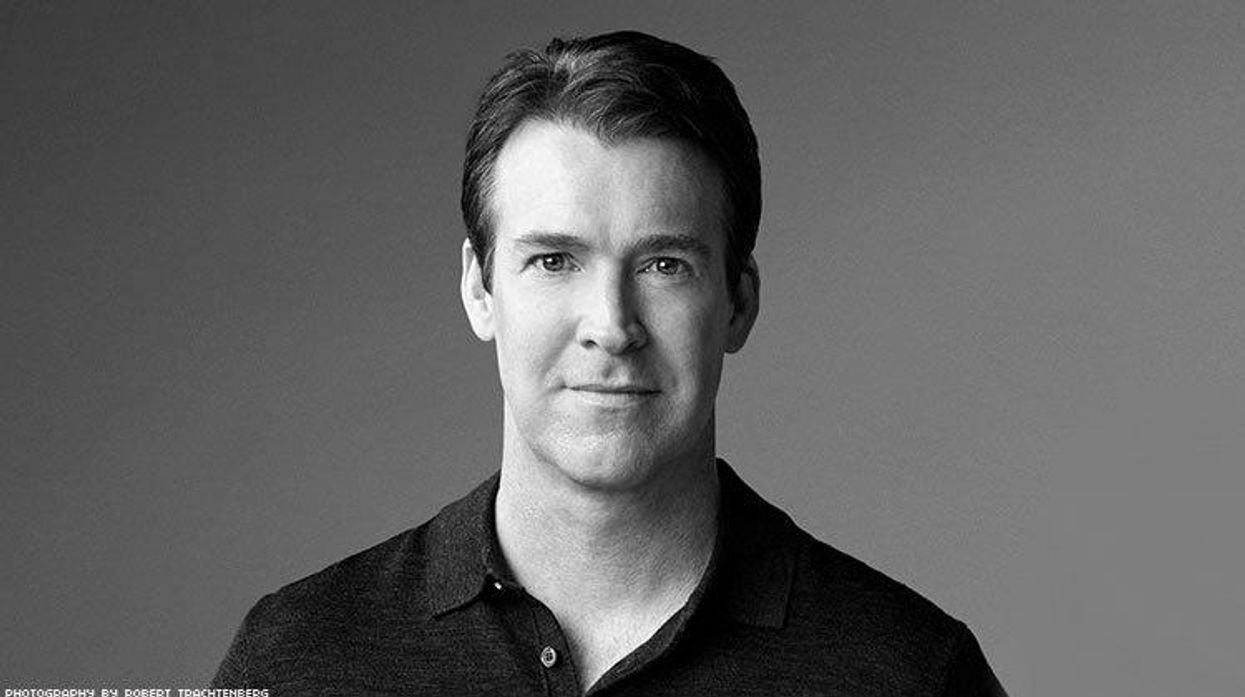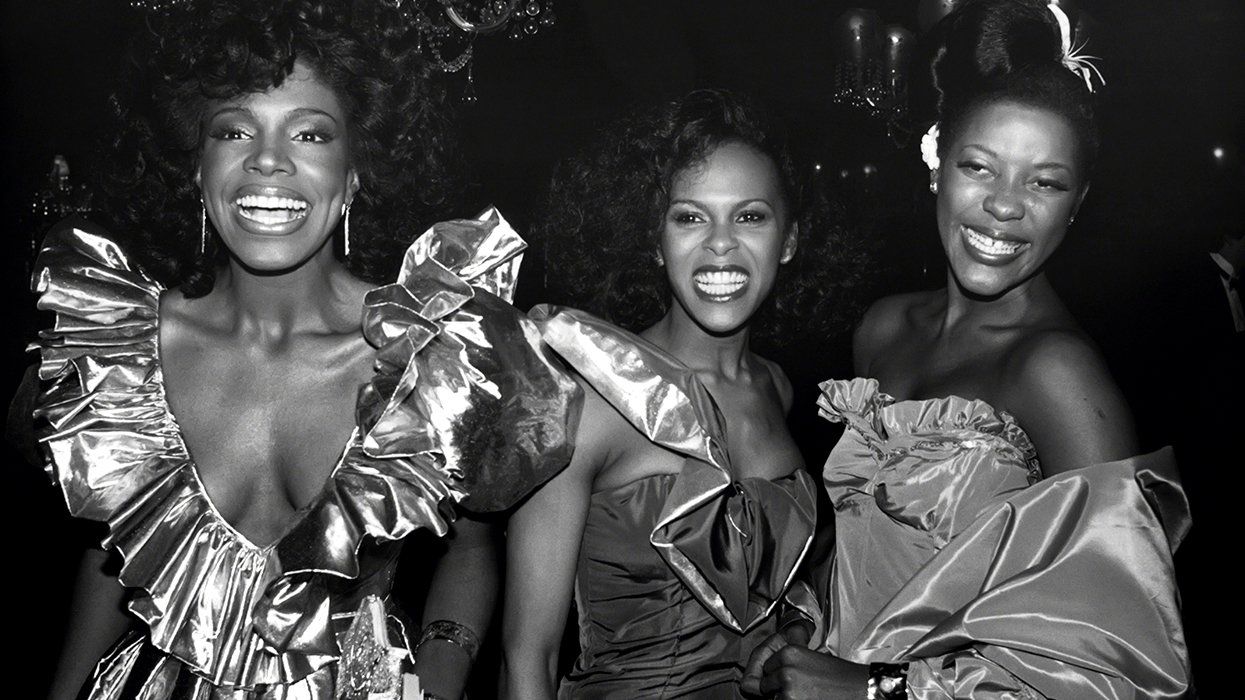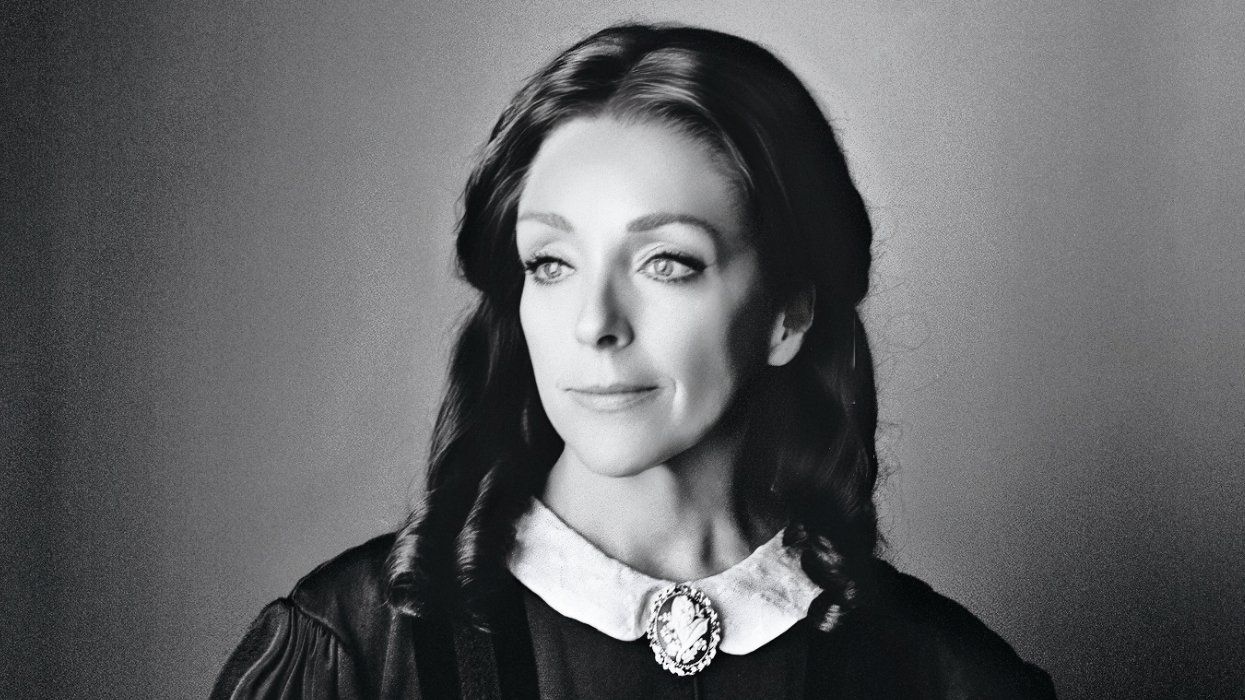You've likely seen Brian Hutchison playing a tough guy in shows like Instinct, Elementary, Vinyl, and Jessica Jones -- or on stage in productions like Man and Boy and Looped. His all-American masculinity made him perfect for the is-he-or-isn't-he-gay character of Alan in the new, all-gay revival of The Boys in the Band. We spoke to Hutchison about his role and the fears that men like Alan still harbor for feminine guys.
The Advocate: Tell us about the first time you saw The Boys in the Band.
Brian Hutchison: I've never seen it on stage. I know they've done it a few times in New York and I know some of the actors who've done it over the years, but I never got to see a stage production. I saw the movie about 15 years ago and it definitely left an impression.
There were some things about it that really resonate today and other things that I felt we've come really, hopefully, a long way from since then. But I didn't really look at it again until I was talking to (director) Joe Mantello about this production, and that was with fresh eyes and ears, understanding that this was the 50th anniversary production, that it was going to be cut down a bit, it was going to be one act instead of two, and I knew some of the actors involved.
What do you think about your character, Alan, who may or may not be gay?
Probably Hank and Alan are the characters that I feel would be the best fit for me. I knew that it was the role of Alan that they were thinking about me for and, reading the play again, everything fell into place and I really have such empathy for his journey and his denial, and the inability to move forward with his life. That to me feels timeless in a way; that sense of denial and that sense of being stuck in your life and not having the tools to be able to move forward in a way that's going to let you live the life you need to live.
Did you feel you had to modernize the character at all?
I don't think of it as modernizing the character. There's something about the language of this play, that, it was written 50 years ago and some of it does feel a little bit heightened, and so you do need to honor that. If you were going to truly modernize it, I would feel much more thrown away -- the way people often talk now in plays on stage, there's a sense of very realistic, naturalistic ease with the dialogue where you don't sort of serve it up in the same way that you might with a classical play or a play that was written 50 or 100 years ago. So there is that sense of needing to honor it but also understanding that we are playing within this period -- it needs to feel a little bit out of time and timeless and accessible to people seeing the play today.
Has there been a prominent change in how gay men speak and interact with each other in the decades since the original production?
Well, hopefully. I think this play in some ways accurately represents what life must've been like for so many people. I don't have groups of friends or parties I go to that are toxic in this way, where people are cutting each other down, and I think that has so much to do with how far we've come, the ability to be out, to be able to live in a city like New York and be able to live the life you need to live without judgement, without too much legislation against you, being able to be married. There's not a concern of losing your job or losing your family or your livelihood or your social standing. So many of those things contribute to our being happier these days.
And I think as much as many people would want to judge this play or the guys in this play, and I know everyone has an opinion about Boys in the Band, I think it is really important to understand why they acted like they did. It really wasn't so much a choice to be unhappy or to be an alcoholic or to wallow in self-loathing, there was this sense of wanting the same things we want -- equality and freedom and equal rights and respect and dignity. Society wasn't prepared to give that to those guys, and so there was this rage and this frustration that even among their chosen family there was still this bitterness and frustration at not being allowed to live their [true] lives.
The fight between Alan and Emory is a big point in the production -- is that in the revival?
Yes, and that comes out of the fact that Alan is so conflicted and so in denial and there's really no answer to the question of, Is he gay or is he not gay? It's just we know he shows up at this party and he needs to talk to Michael and he's been very emotional on the phone and shows up at this party and it's really the first time he's seeing Michael with his gays friends, living as a gay man; Michael's not out to Alan. And so there is honestly a sense of, OK, these are respectable people, most of them. But there is something about Emory that really grates on Alan. I think many men who consider themselves upstanding or masculine don't want to be associated with someone, in Alan's words, that he would call a f****t, a fairy, a pansy, a queer. It's probably his deepest fear that in any way he is associated with Emory.
There still seems to be a lot of femme-phobia in our community.
I think it's gotten better, there's been more awareness, there's been even more trans awareness in the last few years, I think that that's helpful, but yeah, I imagine that might always be the case. I'm not exactly sure what it is about gay men and the tribes they seek out, but often that judgement does seem to persist. I don't experience too much myself, but it is something I'm aware of and I'm not exactly sure why that is still an issue.
What does having an all-gay cast bring to the production?
Fun and laughter and joy and excitement and everybody bringing their best selves and a sense of freedom. There's a bit more of a lack of filter, in a good way. There's just this real ease, this collective deep breath and exhale; a feeling like you're okay.
















Charlie Kirk DID say stoning gay people was the 'perfect law' — and these other heinous quotes
These are some of his worst comments about LGBTQ+ people made by Charlie Kirk.